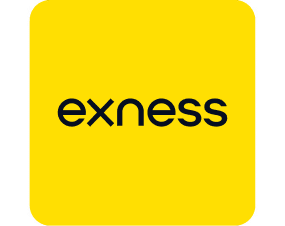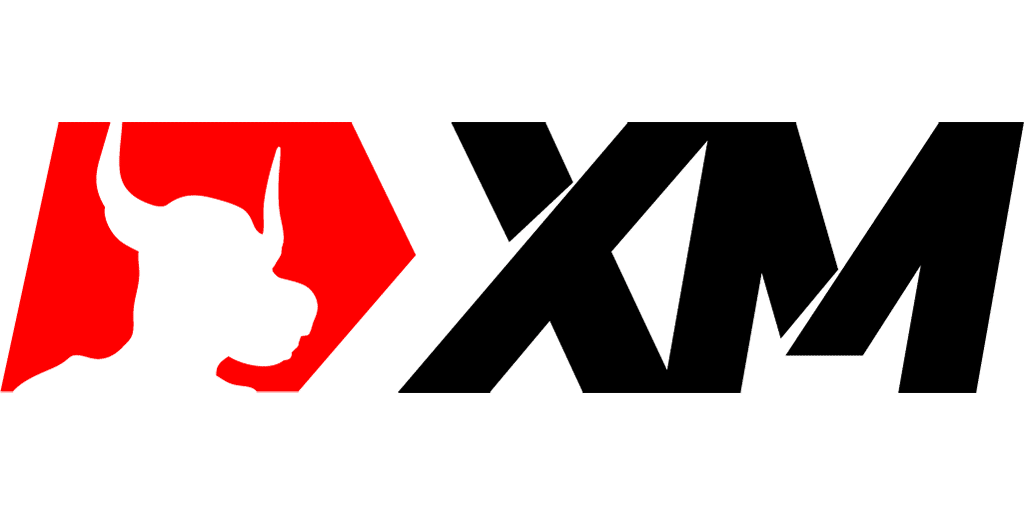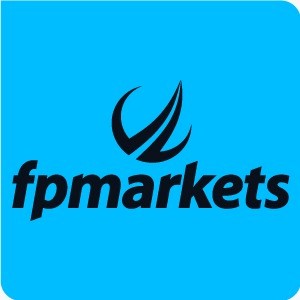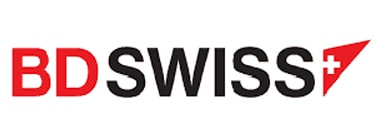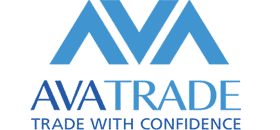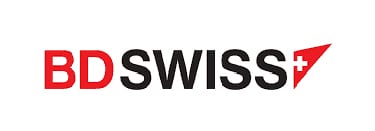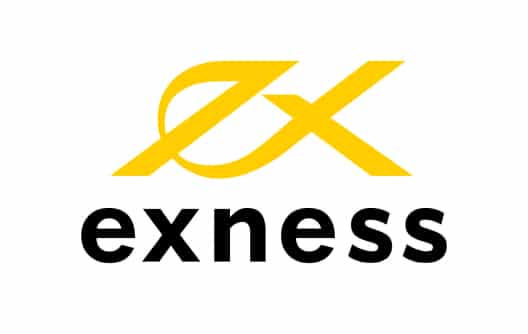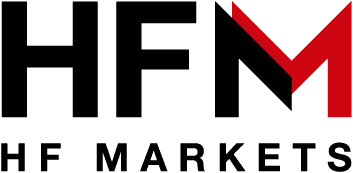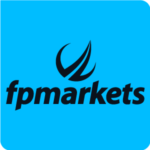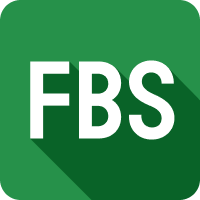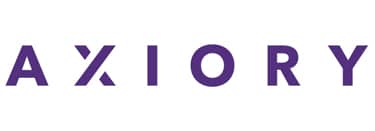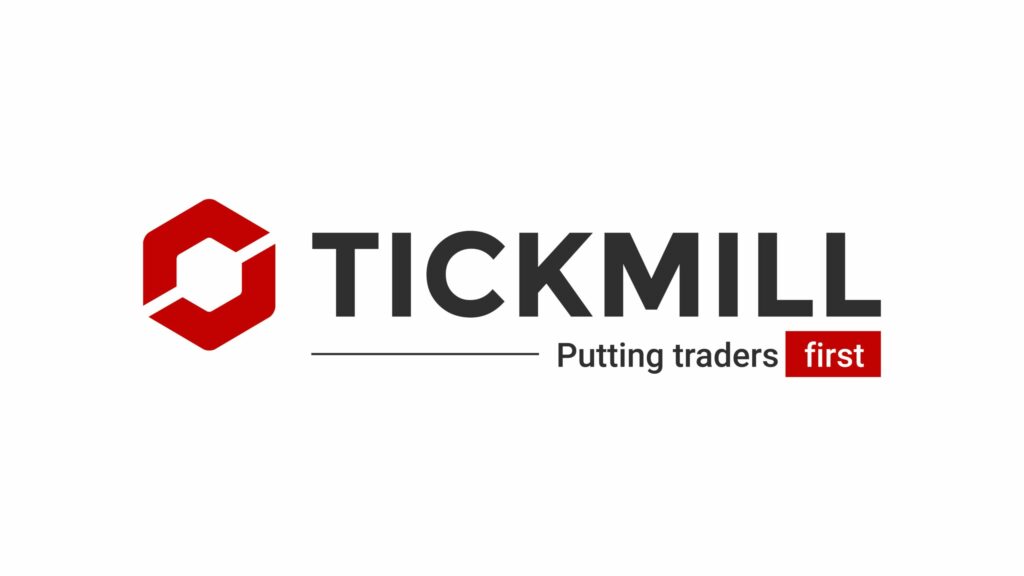
Forex Trading for Beginners in Namibia
Forex Trading for beginners in Namibia revealed. We tested the best guide to forex trading for beginner Namibian Traders.
This is a complete guide to forex trading in Namibia.
In this in-depth guide you’ll learn:
- What is forex trading?
- How to start trading forex in Namibia?
- Which brokers are best for beginner traders?
- Which brokers do the most successful traders use?
- Who are successful forex brokers in Namibia?
- How to choose a forex broker – Compare them side by side against each other.
- Who is the governing body for all regulations?
- Which brokers offer a low minimum deposit of $5 (94 NAD)?
- What are the risks of forex trading?
And lots more…
So if you’re ready to go “all in” with the best-tested forex trading guide…
Let’s dive right in…
- Louis Schoeman
10 Best Forex Brokers in Namibia
Rank
Broker
Review
Regulators
Min Deposit
Official Site
Forex Trading for Beginners in Namibia (Updated 2024)
- What is Forex Trading in Namibia?
- Overview of Forex Trading in Namibia
- Common Forex Terms and Definitions for Namibians
- The Basic Operation of the Forex Market
- Forex Regulation in Namibia
- Factors that Influence Pricing in the Forex Market
- Pros and Cons of Forex Trading
- Forex Risks that Namibians must know
- How to start trading Forex in Namibia
- How to Choose the Right Forex Broker in Namibia
- The Best Forex Brokers in Namibia
- Conclusion
- Frequently Asked Questions
What is Forex Trading in Namibia?
Forex refers to the exchange of foreign currencies. Trading currency pairings on the Foreign Exchange, or Forex, market is done so that participants can make money from fluctuations in exchange rates.
Furthermore, it is no secret that the foreign exchange market is a popular destination for traders of all skill levels. The amount of money exchanged on the foreign exchange market daily is mind-boggling.
Today’s trade volume is about $5.6 trillion. According to data, most foreign exchange transactions include the US dollar. Foreign exchange trades more often than any other market in the world, including indices, commodities, equities, crypto, futures, bonds, and options.
In Namibia, foreign currency may be bought and sold whenever the markets are open. However, due to the overlap of many global marketplaces (in various time zones), foreign exchange trading could occur throughout all except the wee hours of the night, as the markets lack liquidity during this time.
Monday through Friday is the forex market open time, with the Australian markets opening first, followed by the Asian markets, the European markets, and the US markets.
Overview of Forex Trading in Namibia
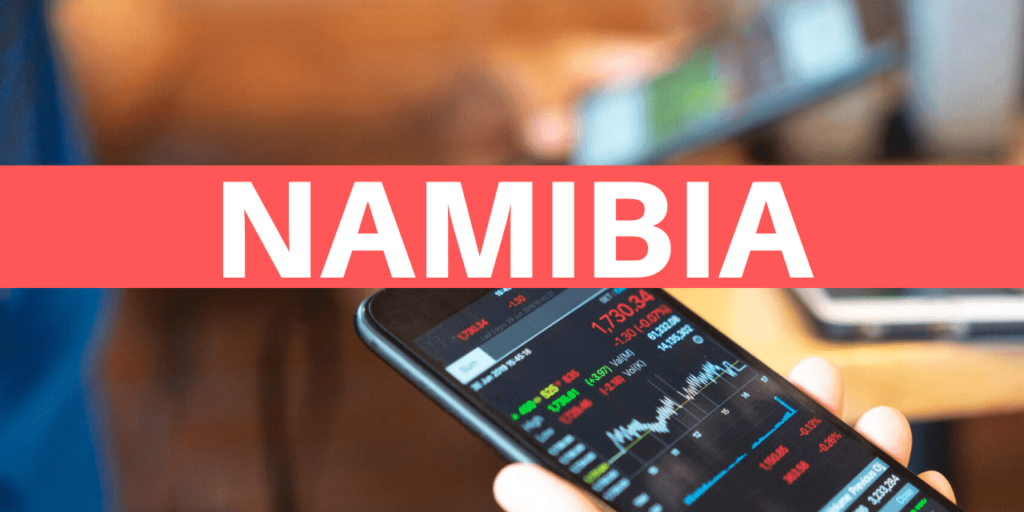
There are rules in place to ensure that Namibia’s foreign currency reserves are used wisely, and these rules apply to any exchange or conversion of the Namibia Dollar into any foreign currency.
The Currency and Exchanges Act, 1933 (Act No. 9 of 1933), the Currency Control Regulations, 1961, and the Rules and Orders promulgated under these statutes govern the foreign exchange market in Namibia.
Only commercial banks and ADs with limited authority (ADLAs) doing business as bureaus de change are allowed to trade in foreign currency under these rules.
Therefore, all genuine foreign currency buyers must do so via commercial banks or Foreign Exchange Bureaus. While Namibian traders cannot trade the underlying asset via international brokers, they can trade forex CFDs through brokers not licensed in Namibia.
Common Forex Terms and Definitions for Namibians
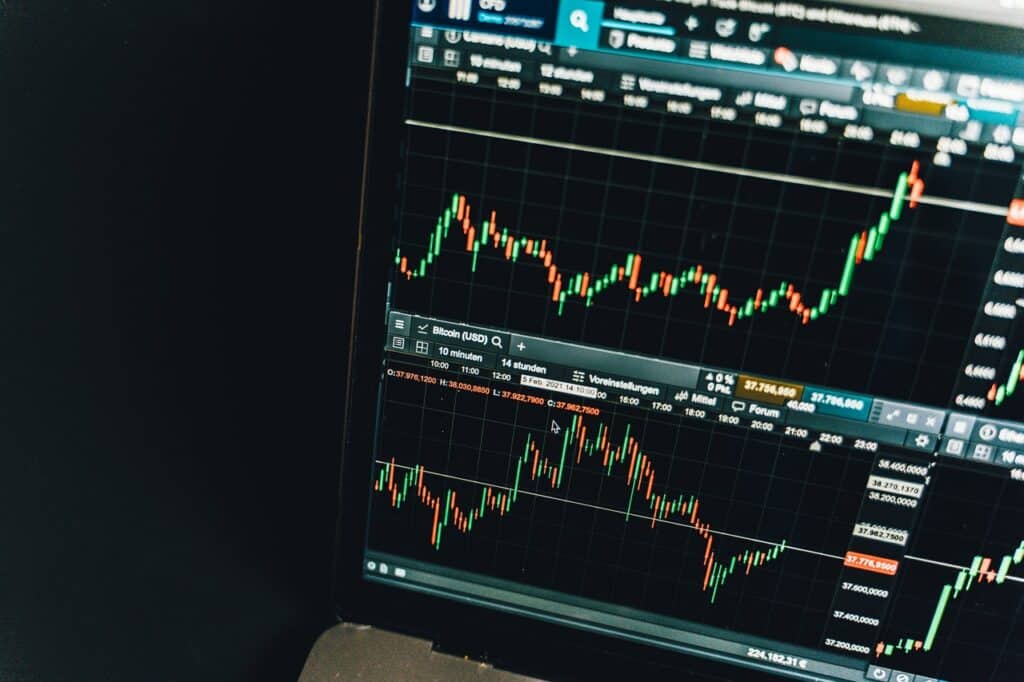
There are so many odd terminologies, acronyms, and terminologies in the Forex sector that we are sometimes left bewildered. In addition, getting acclimated to trading can be difficult enough when new platforms, such as MT4, MT5, etc. are released.
Unfamiliar trading terms and a lack of comprehension of such jargon might severely hamper a trader’s progress and profitability. Therefore, we have provided some of the most common terms and their definitions for Namibian traders.
Over-The-Counter
An over-the-counter deal is a conventional method of conducting a foreign exchange transaction. However, it entails forcing an order via a telephone or technological device and is thus no longer frequent.
Base Currency
The first currency stated in a currency pair is known as the “base currency.” In the case of the USD/NAD combination, for instance, the USD serves as the base currency.
Quote Currency
The second currency included in any currency pair is always referred to as the “quote currency.” In the USD/NAD pairing, for example, the NAD is the quote currency.
Currency Pair
A currency pair consists of two currencies that comprise an exchange rate. Additionally, it is the exchange rate between one currency unit and another.
Ask and Bid Price
The bid price is the price at which a currency pair can be sold. The asking price, also known as the offer price, is the price shown on the right-hand side of a quote and is the cost of purchasing the base currency. Namibians should know that the bid price is typically lower than the ask price.
Quote
A quotation is the market price, which always has two components: the bid or selling price and the ask or purchasing price.
Demo Account
Demo accounts are trading accounts that use virtual money. This paves the way for aspiring traders to test the waters by placing virtual transactions in a risk-free setting.
Spread
The spread represents the number of basis points (pips) between the ask and bid prices. The spread stands instead of transaction fees and indicates the cost of the brokerage service.
Both fixed and floating spreads exist. Regardless of what happens in the market, the difference between the ask and bid price will always be the same with a fixed spread. However, variable spreads may widen or narrow depending on the market liquidity level.
Pip
Pips, the lowest price increment for any currency, are the result of rounding up or down to the fourth decimal point, or 0.0001.
Exchange Rate
The exchange rate is the price at which one currency may be exchanged for another, and it is this cost on which the foreign exchange market is based.
Lot
A lot is a component of the total value of the transaction. The price of a transaction is always divisible by a whole number of lots. For example, a standard lot is 100,000 units of the currency you have chosen to trade with, which is typically a standardized position size in forex trading.
Liquidity
Liquidity is the total quantity of a certain currency that can be transacted currently.
Margin
Margin is the minimal proportion of money required to start and maintain a position in a financial market.
Leverage
Brokers provide a ” leverage ” feature that increases a client’s purchasing power. As a result, traders can enter large-volume currency transactions with only a modest initial capital commitment.
Execution
When a deal is executed, it is initiated and carried out according to predetermined protocols.
Long and Short Position
Investors who take a long position purchase a base currency to benefit from a rise in its market price.
A short position means taking a position that profits on a currency’s market price drop, the opposite of a long position.
Fundamental Analysis
Fundamental analysis involves determining the influence of significant political and economic events on the foreign exchange market, such as unemployment rates and interest rate announcements.
Traders use this type of analysis as a technique for predicting the future direction of the market.
Technical Analysis
Namibian traders utilize technical analysis to estimate future forex market price fluctuations. This is achieved by analysing current and historical market data using trade indicators, charts, and other relevant tools.
Volatility
Volatility refers to busy financial markets that often give possibilities for trading. Several forex traders often use tailormade trading strategies to identify profitable trading opportunities when the volatility increases in the forex market.
Order Type
An order is a directive to conduct a transaction. There are many order kinds, such as the market order, for Namibians who want to trade instantly at the best (if feasible) price.
Requote
Requoting is an unfair execution technique used by certain brokers. It happens when your broker does not want to execute your order at the price you specified and thereby slows down execution for their personal gain.
Slippage
“Slippage” describes a trader performing a transaction at a greater price than anticipated. Typically, this occurs during periods of extreme volatility when investors use stop-loss and market orders.
Bear Market
A bear market is used to describe the drop in the price of an asset, currency, or security. “Bear market” may also be abbreviated to “bear.” At the same time, “bearish” is sometimes used to describe the situation of the forex market while it is in a fall.
Bull Market
This word denotes a price increase for an asset, currency, or security. Like how “bear market” is often abbreviated, “bull market” is sometimes condensed to “bull” and “bullish.”
Overnight Position
This term refers to when a trader maintains an open position overnight and into the following trading day.
The Basic Operation of the Forex Market
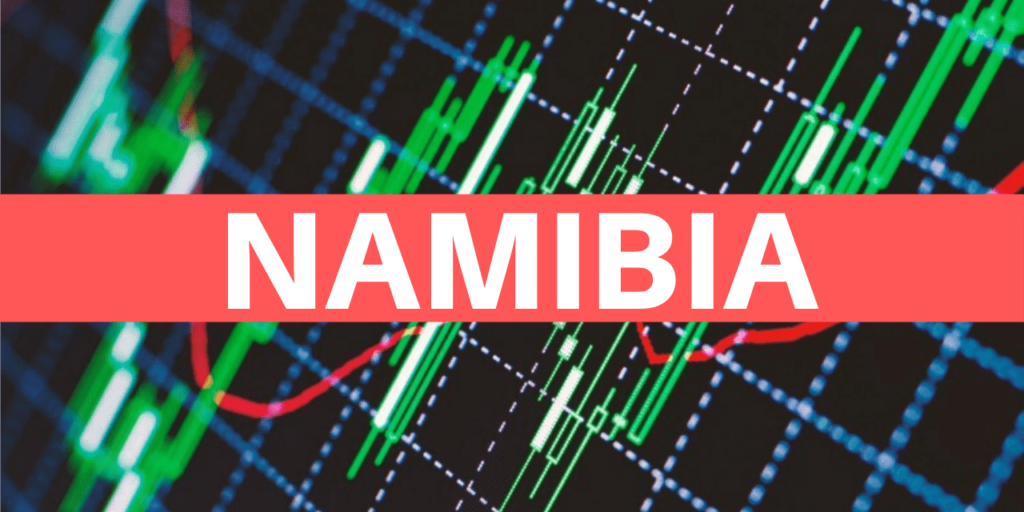
Before entering your first transaction, it is essential to study currency pairings and how the market operates.
Foreign exchange trading speculates on currency markets to generate a profit. By trading one currency for another, a trader speculates on whether the value of one currency will increase or decrease relative to the other.
In the market, currency will always be exchanged in pairs. For example, when exchanging Namibian Dollars for US Dollars, two currencies are involved; thus, the transaction always reflects the value of one currency compared to the other.
The NAD/USD exchange rate, for instance, indicates how many Namibian Dollars (NAD) are required to purchase one US Dollar (USD).
In the market, currency pairs are denoted by corresponding symbols. For example, the Namibian Dollar is represented by NAD, and the US Dollar by USD; therefore, the symbol for the Namibian Dollar/US Dollar pair is NAD/USD.
Many currency pairs fluctuate between 50 and 100 pips daily, sometimes more or less, based on market conditions. Therefore, the profit you earned on the hypothetical deal described above depends on how much currency you acquired.
On a price chart, the first currency mentioned in a pair is always the directional currency for trading purposes.
If the price of NAD/USD rises, the Namibian Dollar appreciates against the US Dollar. Conversely, suppose the price on the graph is dropping. In that case, the Namibian Dollar’s value is decreasing compared to the US dollar.
Trade flows and economic, political, and geopolitical events that impact forex supply and demand influence the value of a currency pair. This causes daily volatility that could provide many trading opportunities for traders.
An online broker operates as an intermediary, allowing ordinary traders to access online trading platforms to speculate on the price fluctuations of currencies.
Furthermore, global CFD brokers provide online trading platforms that allow you to buy and sell currencies from your smartphone, laptop, tablet, or desktop computer.
Forex Regulation in Namibia

Foreign Exchange Regulations touch the lives of every Namibian. The term “exchange control” refers to regulating the movement of money into and out of a nation.
Furthermore, according to the country’s Exchange Control Regulations, Namibian nationals are restricted from freely trading foreign money.
The only authorized dealers in Namibia who can participate in a foreign exchange involving the Namibian Dollar are:
➡️ Banco Privado Atlantico – Europa, S.A. – Namibia Branch
➡️ BankBic Namibia Limited
➡️ Bank Windhoek Limited
➡️ Ebank Limited
➡️ First National Bank of Namibia Limited
➡️ Nedbank Namibia Limited
➡️ SME Bank Limited
➡️ Standard Bank of Namibia Limited
In addition, several Authorized Dealers with Limited Authority (ADLA) can deal in a foreign exchange involving the Namibian Dollar, and these include:
➡️ Cambio Express Exchange Bureau (Pty) Limited
➡️ Cambio Seguro Foreign Exchange (Pty) Limited
➡️ Casa de Cambio Forex (Pty) Limited
➡️ Interchange Money Exchange Namibia (Pty) Limited
➡️ Magnet Bureau de Change (Pty) Limited
➡️ Namibia Bureau de Change (Pty) Limited
➡️ Novacambios Namibia (Pty) Limited
➡️ Oshikango Bureau de Change (Pty) Limited
➡️ Real Transfer Bureau de Change (Pty) Limited
➡️ Rock Hard Bureau de Change (Pty) Limited
Despite these strict regulations, Namibians may invest offshore if they comply with the proper amounts set by the Bank of Namibia. The requirements for offshore investment are:
➡️ Namibian citizens must have a Tax Clearance Certificate from Inland Revenue.
➡️ Private and Retail traders can invest up to 4 million NAD offshore, per person, per year.
Furthermore, Namibian traders can trade Contracts for Difference (CFDs) offshore with international brokers across financial markets. However, as these entities are not regulated in Namibia, traders might be exposed to risks without regulatory protection.
However, if Namibian traders use brokers regulated by the Financial Sector Conduct Authority (FSCA), they can be eligible for protection as Namibia falls within the Common Monetary Area (CMA), which includes Namibia, South Africa, Lesotho, and Swaziland.
Being a part of the CMA means no trade and exchange control restrictions, as control policies are the same across all four countries.
Furthermore, traders must remember that exchange regulations typically only affect locals; thus, foreign investors could freely put their money into Namibian equities.
Factors that Influence Pricing in the Forex Market
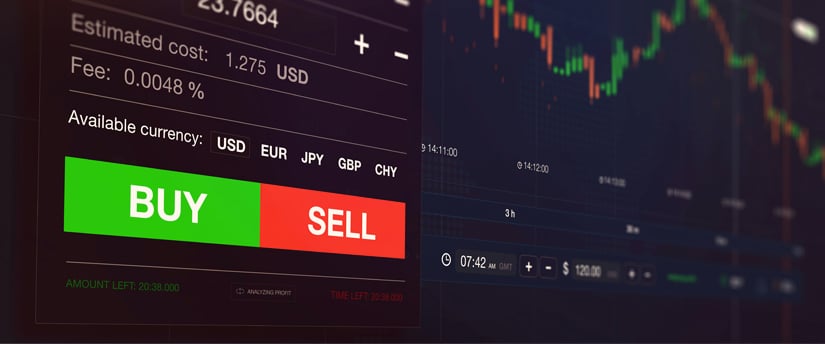
Pairs in the foreign exchange market are too diverse to permit reliable forecasting of future exchange values.
Therefore, to be successful in foreign exchange, it is crucial to have a firm knowledge of supply and demand dynamics since these elements are the fundamental drivers of price change.
News Reports
The prevailing consensus among commercial banks and other investors is that it is best to put money into economies that have a bright future. So, when the good news about an area makes its way to the markets, it could attract investment and boost demand for the region’s currency.
More optimistic reports about Namibia and its economy are needed to attract more international capital.
For prices to go higher, there must be a corresponding increase in the money supply. Like how negative news can reduce investment and lower a currency’s value, good news can increase both. The currency’s worth is based on the proclaimed strength of the economy it stands for.
Credit Ratings
Traders in Namibia seek to maximize profits while reducing losses due to market volatility. In addition to interest rates and economic statistics, these Namibian merchants now have access to credit ratings, which can aid them in making more informed financial choices.
Economic Data
The success of the Namibian economy and the future policy choices of the Central Bank of Namibia are intricately tied to currency price changes, which is why economic data is so crucial.
Market Sentiment
The value of currencies may be significantly affected by this aspect. Namibian traders will make transactions based on their expectations for the currency, which might lead to higher or lower demand for the Namibian Dollar.
Central Banks
The value of a country’s currency may be significantly affected by supply-control measures announced by the central bank. For example, if more money is pumped into an economy via quantitative easing, the currency’s value could fall.
Like other regional central banks, the Bank of Namibia (BoN) controls the circulation of the Namibian Dollar inside the nation.
Pros and Cons of Forex Trading
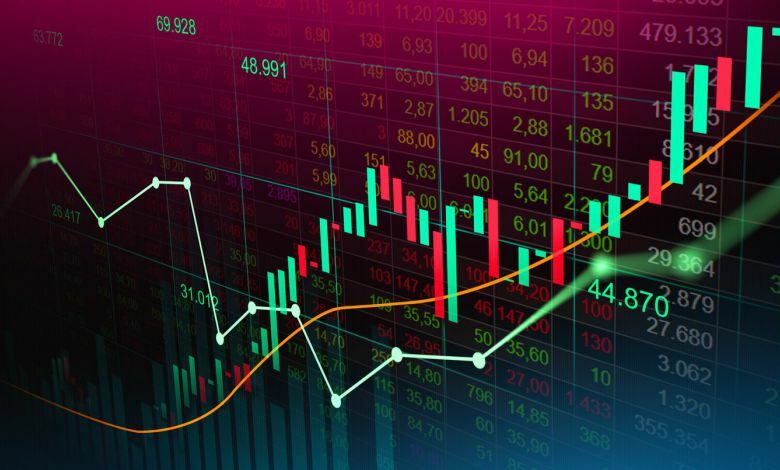
| ✔️ Pros | ❌ Cons |
| Many different strategies are available to traders in the market. There are hundreds of different currency pairings available for trading. Spot trading is another option available to them as a futures contract. | Currency traders speculate on short-term returns in the market. They can find their techniques ineffective during periods of severe volatility. |
| The Foreign Exchange Market is an alternative market with small transaction costs. | There is little oversight of the market. As a result, there is no one location where transactions can be made without risk exposure. Therefore, investors and traders entering transactions need to be aware of the default risk they face, which is the possibility that their counterparty may not have the intent or capacity to fulfil the terms of the contracts. |
| When filing taxes, traders may not need to keep as close an eye on their short-term and long-term trading activity as those involved in other markets, which might simplify their tax computations. | The highest levels of leverage can be seen in the market. The term “leverage” connotes danger, and a “gearing ratio” of 20 to 30 suggests extreme peril. |
| Foreign exchange trading is high-volume, high-speed, and highly liquid. There is a possibility for bigger gains in the forex market due to its peculiarities and the typically higher leverage accessible to forex traders. | Foreign exchange trading activities are notoriously difficult to handle efficiently. |
| The Foreign Exchange Markets Offer Considerable Leverage to Traders. Due to the absence of monetary limits on transactions, this is the case. | Interest and dividends paid on stocks and bonds at predetermined intervals add to an investment’s long-term worth, while Forex sees fewer residual returns. |
| The foreign exchange market is the world’s biggest market. Consequently, trade liquidity is often abundant, particularly in major currencies. | |
| Technical analysis works quite effectively in the market. | |
| Automated trading tactics work effectively in the market as well. | |
| Having access to leverage may double even a modest increase in trading profits. Moreover, in contrast to other markets, the market provides more opportunities to leverage one’s investments. | |
| The currency market is far less centralized and susceptible to insider informational bias. | |
| For those who choose to dabble in Forex, the foreign exchange market is one of the most approachable venues. A trader can open a forex trading account within a few days and begin trading with as little as one dollar. |
Forex Risks that Namibians must know

While opening a trading account online is quite simple, it does not imply risk-free. Risk in trading can be defined as the possibility of losing money, and some factors might lead to this.
Exchange Rate Risks
Forex traders use one country’s currency to buy another country’s currency. As a result, profits can be affected by fluctuations in the relative values of two currencies (or losses).
The relative prices of the two currencies could fluctuate between the time the transaction is finalized and when payment is received. Therefore, a devaluation or depreciation of the foreign currency might lead you to lose money if you are not safeguarded.
Uncontrollable Market Risks
Everything that might affect the price of the currency pairs you are trading is tied to market risk in the market.
Market risk is the most “useful” risk for a trader; it is the risk to which you want to be exposed. Indeed, to earn money on the market, prices must fluctuate so that buyers and sellers may capitalize on price differences. This is known as “market volatility.”
Therefore, volatility is what enables you to make winning investments. Of course, it is risky since you might lose money if the markets move against you, but it also allows you to make profitable deals.
Margin Risk
Using leverage in trading is like using leverage with equities and options. When you trade on margin, you borrow funds from your broker to finance deals that need more money than you have on hand.
If your transaction fails, you could be subject to a margin call, which requires you to deposit funds more than your initial investment to return to compliance.
In the same way, that leverage can increase profits, and it can also exponentially increase losses. Currency markets may be unpredictable; even little price fluctuations might result in margin calls. You might incur considerable losses if you have a high level of debt.
Country Risk
Instability in a country may influence its currency. When a negative event happens or traders worry that one may occur, investors often shift their money out of a country’s currency, which devalues it.
When a government devalues its currency on purpose, you are exposed to a different sort of country risk, and some investors refer to this as “devaluation risk.”
It is only one of many monetary policies in which a country intentionally devalues its currency to compete more successfully in international commerce.
Liquidity Risks
When a market is liquid, it is remarkably simple and quick to initiate and terminate trading positions at the expected price. Unfortunately, even though the Forex market is one of the world’s most liquid financial markets, there are times when liquidity is low.
Liquidity tends to be very low outside American and European trading times or on weekends and bank holidays.
Low liquidity is a significant risk that traders must consider since it often increases trading expenses. Increased trading expenses originate from brokers who typically increase the size of their spreads.
Counterparty Risks
The counterparty in the Forex market is your broker, with whom you open and settle trading positions. The primary risk is that your counterparty will not pay you due to insolvency or ineffective regulatory enforcement.
How to start trading Forex in Namibia

Forex trading can be intimidating for beginners, but with these few steps, any novice can start their forex trading journey:
➡️ Take the time to educate yourself on the many words, markets, probabilities, and methods associated with Forex trading. Your broker might have training materials, but you can also get video courses and internet guidelines.
➡️ Regardless of the knowledge you acquire while educating yourself, there are a few fundamental concepts that all successful traders must embrace while learning how to begin Forex trading.
➡️ Choose the Appropriate Broker. By choosing the right broker, you could prevent large potential losses from the star.
➡️ Manage expectations and avoid being too preoccupied with earnings, which leads to anxiety that could impair your judgment.
➡️ Define your trading risk profile and only invest what you can afford to lose.
➡️ Before engaging in trading, it is essential to comprehend currency pairings. Traders who comprehend which possibilities give the highest return on investment and which ones to avoid tend to have access to a huge array of options.
➡️ Create a trading plan that will govern your whole trading activity. This will prevent you from acquiring harmful habits, such as excessive trading, from the start.
➡️ Select a trading strategy – Choose a trading strategy that you deem suitable. Educate yourself more on this method. Begin educating yourself on a new one after you have mastered the first.
➡️ Numerous broker platforms will allow you to practice with demo trades and real money. It eliminates the danger and gives you access to everything you need to begin learning about the procedure.
➡️ A trial account may educate you a great deal about forex trading. However, putting virtual money on the line differs from putting real money in danger. Once you are confident enough to transition away from demo trading, you should open a micro account that restricts you from placing smaller deals.
How to Choose the Right Forex Broker in Namibia

Namibian traders must evaluate the following components of a forex broker to decide whether the broker is suited to their unique trading objectives or needs.
Regulations and Licenses
This is the first vital component that Namibian traders must thoroughly evaluate. Reputable brokers are regulated by market regulators such as FCA, ASIC, CySEC, FSCA, and others.
Namibians must beware when dealing with brokers with offshore regulations, such as FSA, SVG BVI, FSC, and others.
Account Features
Account Features include leverage trading and margin requirements, commissions and spreads, initial deposits, additional features on retail investor accounts, and so on.
Deposits and Withdrawals
Namibians must evaluate the payment options available, the processing times on withdrawal requests, deposit currencies offered, the withdrawal fee, deposit fees, and minimum withdrawal limits, among other trading and non-trading fees.
Range of Markets
The range of markets offered refers to the number and range of tradable instruments the broker offers. Therefore, Namibians must consider what they wish to trade and what is available.
Customer Support
Customer Support is another crucial factor. Namibians must check the availability of support (trading hours), the quality of support, and the promptness with which the customer support team responds to queries.
Trading Platform
A trading platform is the Namibian trader’s portal to the financial markets. Therefore, traders must ensure that the trading platform has the necessary technical indicators, fundamental analysis, technical analysis, economic calendar, charting, newsfeed, and other tools they may need.
Education and Research
Education and Research come in handy to both novice traders and experienced investors. Education includes some of the following:
➡️ eBooks
➡️ Trading guides
➡️ Trading knowledge on leveraged products
➡️ A risk warning on complex instruments
➡️ Educational videos
Research can include some of the following:
➡️ Trading tools
➡️ Commentary
➡️ Status of International Markets
➡️ Price movements
➡️ Market sentiments
➡️ Whether there is a volatile market
➡️ Exchange Rates
➡️ Expert opinions and other resources can help experienced traders make informed trading decisions.
The Best Forex Brokers in Namibia
In this article, we have listed the best Forex brokers that offer Forex Brokers to traders in Namibia. We have further identified the forex brokers that offer additional services and solutions to Namibian traders.
Best Forex Brokers MetaTrader 4 / MT4 Forex Broker in Namibia
Min Deposit
USD 0 / 0 NAD
Regulators
FCA, ASIC, FSCA, SCB
Trading Desk
MetaTrader 4, Trade Nation proprietary platform
Crypto
Total Pairs
33
Islamic Account
No
Trading Fees
Account Activation
Overall, Trade Nation is the best MT4 forex broker in Namibia. Trade Nation also has an effective trading app. Trade Nation further has competitive costs, a secure trading environment and cutting-edge solutions.
Best Forex Brokers MetaTrader 5 / MT5 Forex Broker in Namibia
Min Deposit
Depending on the payment system, typically, low
Regulators
CBCS, CySEC, FCA, FSA, FSC, FSCA, CMA
Trading Desk
MetaTrader 4, MetaTrader 5, Exness App, Exness Terminal
Crypto
Total Pairs
107
Islamic Account
Trading Fees
Account Activation
Overall, Exness is the best MT5 forex broker in Namibia. Exness offers dynamic and adaptable account types as well as some of the industry’s most advantageous trading conditions. Exness offers over 200 financial products, several retail account types, and a wealth of resources.
Best Forex Brokers Forex Broker for beginners in Namibia
Min Deposit
USD 10 / 195 NAD
Regulators
CySec, FSC, FSA, BaFin, NFA
Trading Desk
MetaTrader 4 , MetaTrader 5
Crypto
Total Pairs
50 Forex Pairs and 20 Crypto Pairs
Islamic Account
Trading Fees
Account Activation
Overall, BDSwiss is the best forex broker for beginners in Namibia. BDSwiss is also a well-regulated broker that has a large international clientele. It offers a diverse range of trading instruments, including forex, commodities, stocks, indices, and many cryptocurrencies.
Best Forex Brokers Minimum Deposit Forex Broker in Namibia
Min Deposit
0 USD / 0 NAD
Regulators
FSCA, CySEC, DFSA, FSA, FCA, FSC, CMA
Trading Desk
MetaTrader 4, OANDA Platform, TradingView
Crypto
Total Pairs
45
Islamic Account
Trading Fees
Account Activation
Overall, Oanda is the best minimum deposit forex broker in Namibia. Oanda also provides competitive trading conditions, a proprietary platform that has won awards, and high-quality trading solutions. Professionals and novices alike can use OANDA’s platform to access a wide range of indicators and charting tools.
Best Forex Brokers ECN Forex Broker in Namibia
Min Deposit
200 AUD / 2,500 NAD
Regulators
ASIC, BaFin, CMA, CySEC, DFSA, FCA, SCB
Trading Desk
TradingView, MetaTrader 4, MetaTrader 5, cTrader, Capitalise.ai
Crypto
Yes (Not available in Africa)
Total Pairs
60+
Islamic Account
Trading Fees
Account Activation
Overall, Pepperstone is the best ECN forex broker in Namibia. Pepperstone is capable of handling multiple order fills, allowing it to feed bigger orders into a liquidity aggregator on numerous levels. Orders placed by clients are filled on a “market execution” basis without requotes, with the possibility of positive or negative slippage, and without broker interference.
Best Forex Brokers Islamic / Swap-Free Forex Broker in Namibia
Min Deposit
0 USD / 0 NAD
Regulators
FSCA, CySEC, DFSA, FSA, FCA, FSC, CMA
Trading Desk
MetaTrader 4, MetaTrader 5, HF App
Crypto
No
Total Pairs
50+
Islamic Account
Trading Fees
Account Activation
Overall, HF Markets is the best Islamic/swap-free forex broker in Namibia. HF Markets, formerly HotForex, is a low-risk CFD and forex broker that provides competitive trading conditions, retail investor accounts, client fund security, and customer support. HF Markets’ retail investor accounts are appropriate for both novice and expert traders.
Best Forex Brokers Forex Trading App in Namibia
Min Deposit
100 AUD / 1,200 NAD
Regulators
ASIC, CySEC, CMA, FSCA
Trading Desk
MT4, MT5, IRESS, cTrader, FP Markets App
Crypto
Total Pairs
63
Islamic Account
Trading Fees
Account Activation
Overall, FP Markets is the best forex trading app broker in Namibia. FP Markets provides over 10,000 products in stocks, indices, forex, commodities, and cryptocurrencies, as well as an easy-to-use mobile app and a variety of account types. FP Markets provides a variety of value-added services, including VPS hosting for automated trading solutions, copy trading through the MT4 Myfxbook service, and retail account management using the MT4 MAM/PAMM module.
Best Forex Brokers Lowest Spread Forex Broker in Namibia
Min Deposit
95 NAD / 5 USD
Regulators
IFSC, CySEC, ASIC, FSCA
Trading Desk
FBS Trader, MetaTrader 4, MetaTrader 5
Crypto
Total Pairs
36
Islamic Account
No
Trading Fees
Account Activation
Overall, FBS is the best lowest spread forex broker in Namibia. FBS is also a top forex and CFD broker for Namibians, offering a variety of trading accounts as well as a cutting-edge proprietary trading app. FBS charges low, competitive fees, and traders can rest assured that their clients’ funds are safe.
Best Forex Brokers Nasdaq 100 Forex Broker in Namibia
Min Deposit
25 USD / 470 NAD
Regulators
CySEC, SVG, FSA
Trading Desk
MT4, MT5, OctaTrader
Crypto
Total Pairs
28
Islamic Account
Trading Fees
Account Activation
Overall, OctaFX is the best Nasdaq 100 forex broker in Namibia. OctaFX is also a trustworthy broker due to its low required minimum deposit, commission-free trading, and unlimited practice account. OctaFX’s mission is to keep trading costs as low as possible through the utilisation of STP (Straight Through Processing) and ECN models.
Best Forex Brokers Volatility 75 / VIX 75 Forex Broker in Namibia
Min Deposit
100 USD / 1,900 NAD
Regulators
Central Bank of Ireland (CBI), BVI FSC, ASIC, FSCA, JFSA, FFAJ, ADGM, CySEC, ISA, KNF, IIROC
Trading Desk
AvaTrade WebTrader, AvaTradeGO, AvaOptions, AvaSocial, MT4, MT5, DupliTrade, ZuluTrade
Crypto
Total Pairs
55+
Islamic Account
Trading Fees
Account Activation
Overall, AvaTrade is the best Volatility 75 / VIX 75 forex broker in Namibia. AvaTrade is a CFD and FX broker that is globally regulated by financial watchdog authorities. It provides an optimal trading environment for traders of all levels, with 24-hour multilingual support desks.
Best Forex Brokers NDD Forex Broker in Namibia
Min Deposit
5 USD / 95 NAD
Regulators
FSCA, IFSC, ASIC, CySEC, DFSA, FCA
Trading Desk
MT4, MT5, XM Mobile App
Total Pairs
57
Islamic Account
Trading Fees
No (Just spread)
Account Activation
Overall, XM is the best NDD forex broker in Namibia. XM was founded in 2009 and has been in operation for more than 12 years. It operates in over 196 countries, has a service team that speaks 30 languages, and is one of the most trusted and well-regulated brokers. XM also provides strong security, superior customer service, account financing, and low fees.
Best Forex Brokers STP Forex Broker in Namibia
Min Deposit
$10 / 195 NAD
Regulators
IFSC, MFSC and FSC
Trading Desk
MetaTrader4, MetaTrader5, CopyTrade and cTrader
Crypto
No
Total Pairs
62
Islamic Account
Trading Fees
Account Activation
Overall, Axiory is the best STP forex broker in Namibia. Axiory trades are executed in less than 200 milliseconds, and Namibian traders are given the best trading software that is linked to Equinix data centres. Axiory’s cTrader, MetaTrader, and the FIX API can be used to trade forex and CFDs.
Best Forex Brokers sign up bonus Broker in Namibia
Min Deposit
100 USD / 1,900 NAD
Regulators
Seychelles FSA, FCA, CySEC, Labuan FSA, FSCA
Trading Desk
MT4, MT5, Tickmill Mobile
Crypto
Total Pairs
62
Islamic Account
Trading Fees
Account Activation
Overall, Tickmill is the best sign-up bonus broker in Namibia. Tickmill’s VIP and Pro accounts also offer very appealing commission-based pricing. Tickmill provides a wide range of CFD currency, stock, commodity, and index CFDs in addition to low spreads, massive leverage, and fast execution speeds.
Conclusion
It is easy to understand why Forex is such a popular market among traders once you learn how to trade it. There are several currency pairings to trade, ranging from majors to developing currencies to exotics.
However, even if the forex market is easier to enter, the risks should not be ignored. While Namibian traders learn how to make profits in forex trading, they should also learn how to protect their capital and trading accounts.
you might also like: Best Auto Trading Robots
you might also like: Best Forex brokers Minimum $100 deposit
you might also like: Best Forex Trading Apps
you might also like: Best Forex No-Deposit Brokers
you might also like: Best Cent Account Forex Brokers
Frequently Asked Questions
Is Forex a good financial market for beginners?
Because of its low entry barrier, trading costs, and requirements, Forex is an ideal market for beginners. However, this market should not be underestimated as it can be risky to trade Forex because of the volatility.
Can Namibians teach themselves to trade Forex?
Namibian traders can educate themselves on forex trading by using the resources offered by their broker or tutorials and guides available on the internet in the form of videos, books, articles, and more.
How much will a beginner Namibian trader need to start trading Forex?
While Namibians can start trading with 17 NAD / 1 USD, most brokers recommend starting with at least 1,000 USD to ensure that you can cover the margin requirements, trading and non-trading fees, and potential losses.
Which forex pair is the best for Namibian beginners?
EUR/USD is the best pair for beginners because it is the most popular and liquid currency with the lowest transaction costs.
Can I trade Forex without a broker in Namibia?
You cannot trade Forex without a broker in Namibia. To exchange NAD for any other currency, you must use an authorized dealer in Namibia.
In addition, if you want to trade forex CFDs and other instruments, you need a forex and CFD broker to facilitate your trades.
Table of Contents







 Scam Forex Brokers in Namibia
Scam Forex Brokers in Namibia
